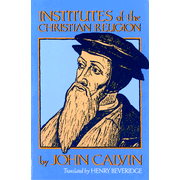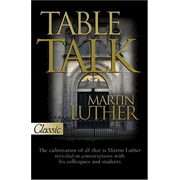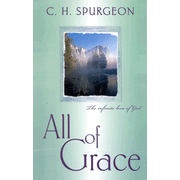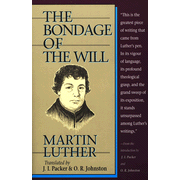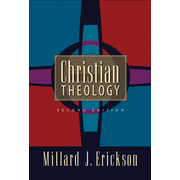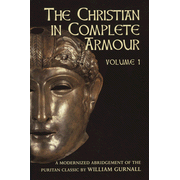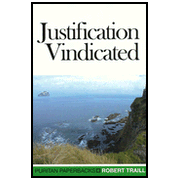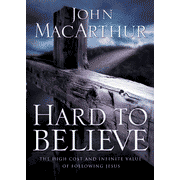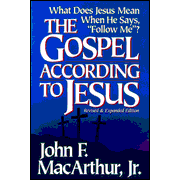Bethesda in Georgia, Dec. 24, 1740
Reverend and very dear Brother,
God only knows what unspeakable sorrow of heart I have felt on your account since I left England last. Whether it be my infirmity or not, I frankly confess, that Jonah could not go with more reluctance against Nineveh, than I now take pen in hand to write against you. Was nature to speak, I had rather die than do it; and yet if I am faithful to God, and to my own and others' souls, I must not stand neutral any longer. I am very apprehensive that our common adversaries will rejoice to see us differing among ourselves. But what can I say? The children of God are in danger of falling into error. Nay, numbers have been misled, whom God has been pleased to work upon by my ministry, and a greater number are still calling aloud upon me to show also my opinion. I must then show that I know no man after the flesh, and that I have no respect to persons, any further than is consistent with my duty to my Lord and Master, Jesus Christ.This letter, no doubt, will lose me many friends: and for this cause perhaps God has laid this difficult task upon me, even to see whether I am willing to forsake all for him, or not. From such considerations as these, I think it my duty to bear an humble testimony, and earnestly to plead for the truths which, I am convinced, are clearly revealed in the Word of God. In the defence whereof I must use great plainness of speech, and treat my dearest friends upon earth with the greatest simplicity, faithfulness, and freedom, leaving the consequences of all to God.For some time before, and especially since my last departure from England, both in public and private, by preaching and printing, you have been propagating the doctrine of universal redemption. And when I remember how Paul reproved Peter for his dissimulation, I fear I have been sinfully silent too long. O then be not angry with me, dear and honoured Sir, if now I deliver my soul, by telling you that I think in this you greatly err.'Tis not my design to enter into a long debate on God's decrees. I refer you to Dr. Edwards his Veritas Redux [1], which, I think is unanswerable—except in a certain point, concerning a middle sort between elect and reprobate, which he himself in effect afterwards condemns.I shall only make a few remarks upon your sermon, entitled Free Grace." And before I enter upon the discourse itself, give me leave to take a little notice of what in your Preface you term an indispensable obligation to make it public to all the world. I must own, that I always thought you were quite mistaken upon that head.The case (you know) stands thus: When you were at Bristol, I think you received a letter from a private hand, charging you with not preaching the gospel, because you did not preach up election. Upon this you drew a lot: the answer was "preach and print." I have often questioned, as I do now, whether in so doing, you did not tempt the Lord. A due exercise of religious prudence, without [the drawing of] a lot, would have directed you in that matter. Besides, I never heard that you enquired of God, whether or not election was a gospel doctrine.But, I fear, taking it for granted [that election was not a biblical truth], you only enquired whether you should be silent or preach and print against it.However this be, the lot came out "preach and print"; accordingly you preached and printed against election. At my desire, you suppressed the publishing of the sermon whilst I was in England; but you soon sent it into the world after my departure. O that you had kept it in! However, if that sermon was printed in answer to a lot, I am apt to think, one reason why God should so suffer you to be deceived, was, that hereby a special obligation might be laid upon me, faithfully to declare the Scripture doctrine of election, that thus the Lord might give me a fresh opportunity of seeing what was in my heart, and whether I would be true to his cause or not; as you could not but grant, he did once before, by giving you such another lot at Deal.The morning I sailed from Deal for Gibraltar [2 February 1738], you arrived from Georgia. Instead of giving me an opportunity to converse with you, though the ship was not far off the shore, you drew a lot, and immediately set forward to London. You left a letter behind you, in which were words to this effect: "When I saw [that] God, by the wind which was carrying you out, brought me in, I asked counsel of God. His answer you have enclosed." This was a piece of paper, in which were written these words, "Let him return to London."When I received this, I was somewhat surprised. Here was a good man telling me he had cast a lot, and that God would have me return to London. On the other hand, I knew my call was to Georgia, and that I had taken leave of London, and could not justly go from the soldiers, who were committed to my charge. I betook myself with a friend to prayer. That passage in 1 Kings 13 was powerfully impressed upon my soul, where we are told that the Prophet was slain by a lion when he was tempted to go back (contrary to God's express order) upon another Prophet's telling him God would have him do so. I wrote you word that I could not return to London. We sailed immediately.Some months after, I received a letter from you at Georgia, wherein you wrote words to this effect: "Though God never before gave me a wrong lot, yet, perhaps, he suffered me to have such a lot at that time, to try what was in your heart." I should never have published this private transaction to the world, did not the glory of God call me to it. It is plain you had a wrong lot given you here, and justly, because you tempted God in drawing one. And thus I believe it is in the present case. And if so, let not the children of God who are mine and your intimate friends, and also advocates for universal redemption, think that doctrine true—because you preached it up in compliance with a lot given out from God.This, I think, may serve as an answer to that part of the Preface to your printed sermon, wherein you say, "Nothing but the strongest conviction, not only that what is here advanced is the truth as it is in Jesus, but also that I am indispensably obliged to declare this truth to all the world." That you believe what you have written to be truth, and that you honestly aim at God's glory in writing, I do not in the least doubt. But then, honoured Sir, I cannot but think you have been much mistaken in imagining that your tempting God, by casting a lot in the manner you did could lay you under an indispensable obligation to any action, much less to publish your sermon against the doctrine of predestination to life.I must next observe, that as you have been unhappy in printing at all upon such an imaginary warrant, so you have been as unhappy in the choice of your text. Honoured Sir, how could it enter into your heart to choose a text to disprove the doctrine of election out of Romans 8, where this doctrine is so plainly asserted? Once I spoke with a Quaker upon this subject, and he had no other way of evading the force of the Apostle's assertion than by saying, "I believe Paul was in the wrong." And another friend lately, who was once highly prejudiced against election, ingenuously confessed that he used to think St. Paul himself was mistaken, or that he was not truly translated.Indeed, honoured Sir, it is plain beyond all contradiction that St. Paul, through the whole of Romans 8, is speaking of the privileges of those only who are really in Christ. And let any unprejudiced person read what goes before and what follows your text, and he must confess the word "all" only signifies those that are in Christ. And the latter part of the text plainly proves, what, I find, dear Mr. Wesley will, by no means, grant. I mean the final perseverance of the children of God: "He that spared not his own Son, but delivered him up for us all, [i.e., all Saints] how shall he not with him also freely give us all things?" (Rom. 8:32). [He shall give us] grace, in particular, to enable us to persevere, and every thing else necessary to carry us home to our Father's heavenly kingdom.Had any one a mind to prove the doctrine of election, as well as of final perseverance, he could hardly wish for a text more fit for his purpose than that which you have chosen to disprove it! One who did not know you would suspect that you were aware of this, for after the first paragraph, I scarce know whether you have mentioned [the text] so much as once through your whole sermon.But your discourse, in my opinion, is as little to the purpose as your text, and instead of warping, does but more and more confirm me in the belief of the doctrine of God's eternal election.I shall not mention how illogically you have proceeded. Had you written clearly, you should first, honoured Sir, have proved your proposition: "God's grace is free to all." And then by way of inference [you might have] exclaimed against what you call the horrible decree. But you knew that people (because Arminianism, of late, has so much abounded among us) were generally prejudiced against the doctrine of reprobation, and therefore thought if you kept up their dislike of that, you could overthrow the doctrine of election entirely. For, without doubt, the doctrine of election and reprobation must stand or fall together.But passing by this, as also your equivocal definition of the word grace, and your false definition of the word free, and that I may be as short as possible, I frankly acknowledge: I believe the doctrine of reprobation, in this view, that God intends to give saving grace, through Jesus Christ, only to a certain number, and that the rest of mankind, after the fall of Adam, being justly left of God to continue in sin, will at last suffer that eternal death which is its proper wages.This is the established doctrine of Scripture, and acknowledged as such in the 17th article of the Church of England, as Bishop Burnet himself confesses. Yet dear Mr. Wesley absolutely denies it.But the most important objections you have urged against this doctrine as reasons why you reject it, being seriously considered, and faithfully tried by the Word of God, will appear to be of no force at all. Let the matter be humbly and calmly reviewed, as to the following heads:First, you say that if this be so (i.e., if there be an election) then is all preaching vain: it is needless to them that are elected; for they, whether with preaching or without, will infallibly be saved. Therefore, the end of preaching to save souls is void with regard to them. And it is useless to them that are not elected, for they cannot possibly be saved. They, whether with preaching or without, will infallibly be damned. The end of preaching is therefore void with regard to them likewise. So that in either case our preaching is vain, and your hearing also vain. Page 10, paragraph 9.O dear Sir, what kind of reasoning—or rather sophistry—is this! Hath not God, who hath appointed salvation for a certain number, appointed also the preaching of the Word as a means to bring them to it? Does anyone hold election in any other sense? And if so, how is preaching needless to them that are elected, when the gospel is designated by God himself to be the power of God unto their eternal salvation? And since we know not who are elect and who reprobate, we are to preach promiscuously to all. For the Word may be useful, even to the non-elect, in restraining them from much wickedness and sin. However, it is enough to excite to the utmost diligence in preaching and hearing, when we consider that by these means, some, even as many as the Lord hath ordained to eternal life, shall certainly be quickened and enabled to believe. And who that attends, especially with reverence and care, can tell but he may be found of that happy number?Second, you say that the doctrine of election and reprobation directly tends to destroy holiness, which is the end of all the ordinances of God. For (says the dear mistaken Mr. Wesley) "it wholly takes away those first motives to follow after it, so frequently proposed in Scripture. The hope of future reward, and fear of punishment, the hope of heaven, and the fear of hell, et cetera."I thought that one who carries perfection to such an exalted pitch as dear Mr. Wesley does, would know that a true lover of the Lord Jesus Christ would strive to be holy for the sake of being holy, and work for Christ out of love and gratitude, without any regard to the rewards of heaven, or fear of hell. You remember, dear Sir, what Scougal says, "Love's a more powerful motive that does them move." But passing by this, and granting that rewards and punishments (as they certainly are) may be motives from which a Christian may be honestly stirred up to act for God, how does the doctrine of election destroy these motives? Do not the elect know that the more good works they do, the greater will be their reward? And is not that encouragement enough to set them upon, and cause them to persevere in working for Jesus Christ? And how does the doctrine of election destroy holiness? Who ever preached any other election than what the Apostle preached, when he said, "Chosen . . . through sanctification of the Spirit?" (2 Thess. 2:13). Nay, is not holiness made a mark of our election by all that preach it? And how then can the doctrine of election destroy holiness?The instance which you bring to illustrate your assertion, indeed, dear Sir, is quite impertinent. For you say, "If a sick man knows that he must unavoidably die or unavoidably recover, though he knows not which, it is not reasonable to take any physic at all." Dear Sir, what absurd reasoning is here? Were you ever sick in your life? If so, did not the bare probability or possibility of your recovering, though you knew it was unalterably fixed that you must live or die, encourage you to take physic? For how did you know but that very physic might be the means God intended to recover you by?Just thus it is as to the doctrine of election. I know that it is unalterably fixed (one may say) that I must be damned or saved; but since I know not which for a certainty, why should I not strive, though at present in a state of nature, since I know not but this striving may be the means God has intended to bless, in order to bring me into a state of grace?Dear Sir, consider these things. Make an impartial application, and then judge what little reason you had to conclude the 10th paragraph, page 12, with these words: "So directly does this doctrine tend to shut the very gate of holiness in general, to hinder unholy men from ever approaching thereto, or striving to enter in thereat.""As directly," you say, "does the doctrine tend to destroy several particular branches of holiness, such as meekness, love, et cetera." I shall say little, dear Sir, in answer to this paragraph. Dear Mr. Wesley perhaps has been disputing with some warm narrow-spirited men that held election, and then he infers that their warmth and narrowness of spirit was owing to their principles? But does not dear Mr. Wesley know many dear children of God, who are predestinarians, and yet are meek, lowly, pitiful, courteous, tender- hearted, kind, of a catholic spirit, and hope to see the most vile and profligate of men converted? And why? because they know God saved themselves by an act of his electing love, and they know not but he may have elected those who now seem to be the most abandoned.But, dear Sir, we must not judge of the truth of principles in general, nor of this of election in particular, entirely from the practice of some that profess to hold them. If so, I am sure much might be said against your own. For I appeal to your own heart, whether or not you have not felt in yourself, or observed in others, a narrow-spiritedness, and some disunion of soul respecting those that hold universal redemption. If so, then according to your own rule, universal redemption is wrong, because it destroys several branches of holiness, such as meekness, love, et cetera. But not to insist upon this, I beg you would observe that your inference is entirely set aside by the force of the Apostle's argument, and the language which he expressly uses in Colossians 3:12-13: "Put on therefore, as the elect of God, holy and beloved, bowels of mercies, kindness, humbleness of mind, meekness, longsuffering; forbearing one another, and forgiving one another, if any man have a quarrel against any: even as Christ forgave you, so also do ye."Here we see that the Apostle exhorts them to put on bowels of mercy, kindness, humbleness of mind, meekness, long-suffering, et cetera, upon this consideration: namely, because they were elect of God. And all who have experientially felt this doctrine in their hearts feel that these graces are the genuine effects of their being elected of God.But perhaps dear Mr. Wesley may be mistaken in this point, and call that passion which is only zeal for God's truths. You know, dear Sir, the Apostle exhorts us to "contend earnestly for the faith once delivered to the saints" (Jude 3). Therefore you must not condemn all that appear zealous for the doctrine of election as narrow-spirited, or persecutors, just because they think it their duty to oppose you. I am sure, I love you in the bowels of Jesus Christ, and think I could lay down my life for your sake; but yet, dear Sir, I cannot help strenuously opposing your errors upon this important subject, because I think you warmly, though not designedly, oppose the truth, as it is in Jesus. May the Lord remove the scales of prejudice from off the eyes of your mind and give you a zeal according to true Christian knowledge!Third, says your sermon, "This doctrine tends to destroy the comforts of religion, the happiness of Christianity, et cetera."But how does Mr. Wesley know this, who never believed election? I believe they who have experienced it will agree with our 17th article, that "the godly consideration of predestination, and election in Christ, is full of sweet, pleasant, unspeakable comfort to godly persons, and such as feel in themselves the working of the Spirit of Christ, mortifying the works of the flesh, and their earthly members, and drawing their minds to high and heavenly things, as well because it does greatly establish and confirm their faith of eternal salvation, to be enjoyed through Christ, as because it doth fervently kindle their love towards God," et cetera.This plainly shows that our godly reformers did not think election destroyed holiness or the comforts of religion. As for my own part, this doctrine is my daily support. I should utterly sink under a dread of my impending trials, were I not firmly persuaded that God has chosen me in Christ from before the foundation of the world, and that now being effectually called, he will allow no one to pluck me out of his almighty hand.You proceed thus: "This is evident as to all those who believe themselves to be reprobate, or only suspect or fear it; all the great and precious promises are lost to them; they afford them no ray of comfort."In answer to this, let me observe that none living, especially none who are desirous of salvation, can know that they are not of the number of God's elect. None but the unconverted, can have any just reason so much as to fear it. And would dear Mr. Wesley give comfort, or dare you apply the precious promises of the gospel, being children's bread, to men in a natural state, while they continue so? God forbid! What if the doctrine of election and reprobation does put some upon doubting? So does that of regeneration. But, is not this doubting a good means to put them upon searching and striving; and that striving, a good means to make their calling and their election sure?This is one reason among many others why I admire the doctrine of election and am convinced that it should have a place in gospel ministrations and should be insisted on with faithfulness and care. It has a natural tendency to rouse the soul out of its carnal security. And therefore many carnal men cry out against it. Whereas universal redemption is a notion sadly adapted to keep the soul in its lethargic sleepy condition, and therefore so many natural men admire and applaud it.Your 13th, 14th and 15th paragraphs come next to be considered. "The witness of the Spirit," you say, "experience shows to be much obstructed by this doctrine."But, dear Sir, whose experience? Not your own; for in your journal, from your embarking for Georgia, to your return to London, you seem to acknowledge that you have it not, and therefore you are no competent judge in this matter. You must mean then the experience of others. For you say in the same paragraph, "Even in those who have tasted of that good gift, who yet have soon lost it again," (I suppose you mean lost the sense of it again) "and fallen back into doubts and fears and darkness, even horrible darkness that might be felt, et cetera." Now, as to the darkness of desertion, was not this the case of Jesus Christ himself, after he had received an unmeasurable unction of the Holy Ghost? Was not his soul exceeding sorrowful, even unto death, in the garden? And was he not surrounded with an horrible darkness, even a darkness that might be felt, when on the cross he cried out, "My God! My God! why hast thou forsaken me?"And that all his followers are liable to the same, is it not evident from Scripture? For, says the Apostle, "He was tempted in all things like as we are" (Heb 4:15) so that he himself might be able to succour those that are tempted (Heb. 2:18). And is not their liableness thereunto consistent with that conformity to him in suffering, which his members are to bear (Phil. 3:10)? Why then should persons falling into darkness, after they have received the witness of the Spirit, be any argument against the doctrine of election?"Yet," you say, "many, very many of those that hold it not, in all parts of the earth, have enjoyed the uninterrupted witness of the Spirit, the continual light of God's countenance, from the moment wherein they first believed, for many months or years, to this very day." But how does dear Mr. Wesley know this? Has he consulted the experience of many, very many in all parts of the earth? Or could he be sure of what he hath advanced without sufficient grounds, would it follow that their being kept in this light is owing to their not believing the doctrine of election? No, this [doctrine], according to the sentiments of our church, "greatly confirms and establishes a true Christian's faith of eternal salvation through Christ," and is an anchor of hope, both sure and steadfast, when he walks in darkness and sees no light; as certainly he may, even after he hath received the witness of the Spirit, whatever you or others may unadvisedly assert to the contrary.Then, to have respect to God's everlasting covenant, and to throw himself upon the free distinguishing love of that God who changeth not, will make him lift up the hands that hang down, and strengthen the feeble knees.But without the belief of the doctrine of election, and the immutability of the free love of God, I cannot see how it is possible that any should have a comfortable assurance of eternal salvation. What could it signify to a man whose conscience is thoroughly awakened, and who is warned in good earnest to seek deliverance from the wrath to come, though he should be assured that all his past sins be forgiven, and that he is now a child of God; if notwithstanding this, he may hereafter become a child of the devil, and be cast into hell at last? Could such an assurance yield any solid, lasting comfort to a person convinced of the corruption and treachery of his own heart, and of the malice, subtlety, and power of Satan? No! That which alone deserves the name of a full assurance of faith is such an assurance as emboldens the believer, under the sense of his interest in distinguishing love, to give the challenge to all his adversaries, whether men or devils, and that with regard to all their future, as well as present, attempts to destroy—saying with the Apostle,
Who shall lay any thing to the charge of God's elect? It is God that justifieth. Who is he that condemneth? It is Christ that died, yea rather, that is risen again, who is even at the right hand of God, who also maketh intercession for us. Who shall separate us from the love of Christ? shall tribulation, or distress, or persecution, or famine, or nakedness, or peril, or sword? As it is written, For thy sake we are killed all the day long; we are accounted as sheep for the slaughter. Nay, in all these things we are more than conquerors through him that loved us. For I am persuaded, that neither death, nor life, nor angels, nor principalities, nor powers, nor things present, nor things to come, nor height, nor depth, nor any other creature, shall be able to separate us from the love of God, which is in Christ Jesus our Lord (Rom. 8:33-39).
This, dear Sir, is the triumphant language of every soul that has attained a full assurance of faith. And this assurance can only arise from a belief of God's electing everlasting love. That many have an assurance they are in Christ today, but take no thought for, or are not assured they shall be in him tomorrow—nay to all eternity—is rather their imperfection and unhappiness than their privilege. I pray God to bring all such to a sense of his eternal love, that they may no longer build upon their own faithfulness, but on the unchangeableness of that God whose gifts and callings are without repentance. For those whom God has once justified, he also will glorify.I observed before, dear Sir, it is not always a safe rule to judge of the truth of principles from people's practice. And therefore, supposing that all who hold universal redemption in your way of explaining it, after they received faith, enjoyed the continual uninterrupted sight of God's countenance, it does not follow that this is a fruit of their principle. For that I am sure has a natural tendency to keep the soul in darkness for ever, because the creature thereby is taught that his being kept in a state of salvation is owing to his own free will. And what a sandy foundation is that for a poor creature to build his hopes of perseverance upon? Every relapse into sin, every surprise by temptation, must throw him "into doubts and fears, into horrible darkness, even darkness that may be felt."Hence it is that the letters which have been lately sent me by those who hold universal redemption are dead and lifeless, dry and inconsistent, in comparison of those I receive from persons on the contrary side. Those who settle in the universal scheme, though they might begin in the Spirit, (whatever they may say to the contrary) are ending in the flesh, and building up a righteousness founded on their own free will: whilst the others triumph in hope of the glory of God, and build upon God's never-failing promise and unchangeable love, even when his sensible presence is withdrawn from them.But I would not judge of the truth of election by the experience of any particular persons: if I did (O bear with me in this foolishness of boasting) I think I myself might glory in election. For these five or six years I have received the witness of God's Spirit; since that, blessed be God, I have not doubted a quarter of an hour of a saving interest in Jesus Christ: but with grief and humble shame I do acknowledge, I have fallen into sin often since that. Though I do not—dare not—allow of any one transgression, yet hitherto I have not been (nor do I expect that while I am in this present world I ever shall be) able to live one day perfectly free from all defects and sin. And since the Scriptures declare that there is not a just man upon earth (no, not among those of the highest attainments in grace) that doeth good and sinneth not (Eccl. 7:20), we are sure that this will be the case of all the children of God.The universal experience and acknowledgement of this among the godly in every age is abundantly sufficient to confute the error of those who hold in an absolute sense that after a man is born again he cannot commit sin. Especially since the Holy Spirit condemns the persons who say they have no sin as deceiving themselves, as being destitute of the truth, and as making God a liar (1 Jn. 1:8, 10). I have been also in heaviness through manifold temptations, and expect to be often so before I die. Thus were the Apostles and primitive Christians themselves. Thus was Luther, that man of God, who, as far as I can find, did not peremptorily, at least, hold election; and the great John Arndt was in the utmost perplexity, but a quarter of an hour before he died, and yet he was no predestinarian.And if I must speak freely, I believe your fighting so strenuously against the doctrine of election and pleading so vehemently for a sinless perfection are among the reasons or culpable causes, why you are kept out of the liberties of the gospel, and from that full assurance of faith which they enjoy, who have experimentally tasted, and daily feed upon God's electing, everlasting love.But perhaps you may say, that Luther and Arndt were no Christians, at least very weak ones. I know you think meanly of Abraham, though he was eminently called the friend of God: and, I believe, also of David, the man after God's own heart. No wonder, therefore, that in a letter you sent me not long since, you should tell me that no Baptist or Presbyterian writer whom you have read knew anything of the liberties of Christ. What? Neither Bunyan, Henry, Flavel, Halyburton, nor any of the New England and Scots divines? See, dear Sir, what narrow-spiritedness and want of charity arise from your principles, and then do not cry out against election any more on account of its being "destructive of meekness and love."Fourth, I shall now proceed to another head. Says the dear Mr. Wesley, "How uncomfortable a thought is this, that thousands and millions of men, without any preceding offence or fault of theirs, were unchangeably doomed to everlasting burnings?"But who ever asserted, that thousands and millions of men, without any preceding offence or fault of theirs, were unchangeably doomed to everlasting burnings? Do not they who believe God's dooming men to everlasting burnings, also believe, that God looked upon them as men fallen in Adam? And that the decree which ordained the punishment first regarded the crime by which it was deserved? How then are they doomed without any preceding fault? Surely Mr. Wesley will own God's justice in imputing Adam's sin to his posterity. And also, after Adam fell, and his posterity in him, God might justly have passed them all by, without sending his own Son to be a saviour for any one. Unless you heartily agree to both these points, you do not believe original sin aright. If you do own them, then you must acknowledge the doctrine of election and reprobation to be highly just and reasonable. For if God might justly impute Adam's sin to all, and afterwards have passed by all, then he might justly pass by some. Turn on the right hand, or on the left; you are reduced to an inextricable dilemma. And, if you would be consistent, you must either give up the doctrine of the imputation of Adam's sin, or receive the amiable doctrine of election, with a holy and righteous reprobation as its consequent. For whether you can believe it or not, the Word of God abides faithful: "The election hath obtained it, and the rest were blinded" (Rom. 11:7).Your 17th paragraph, page 16, I pass over. What has been said on the 9th and 10th paragraphs, with a little alteration, will answer it. I shall only say, it is the doctrine of election that most presses me to abound in good works. I am willing to suffer all things for the elect's sake. This makes me to preach with comfort, because I know salvation does not depend on man's free will, but the Lord makes willing in the day of his power, and can make use of me to bring some of his elect home, when and where he pleases.But, Fifth, you say, "This doctrine has a direct manifest tendency to overthrow the whole Christian religion. For," say you, "supposing that eternal, unchangeable decree, one part of mankind must be saved, though the Christian revelation were not in being."But, dear Sir, how does that follow? Since it is only by the Christian revelation that we are acquainted with God's design of saving his church by the death of his Son. Yea, it is settled in the everlasting covenant that this salvation shall be applied to the elect through the knowledge and faith of him. As the prophet says in Isaiah 53:11, "By his knowledge shall my righteous servant justify many." How then has the doctrine of election a direct tendency to overthrow the whole Christian revelation? Who ever thought that God's declaration to Noah, that seed-time and harvest should never cease, could afford an argument for the neglect of plowing or sowing? Or that the unchangeable purpose of God, that harvest should not fail, rendered the heat of the sun, or the influence of the heavenly bodies unnecessary to produce it? No more does God's absolute purpose of saving his chosen preclude the necessity of the gospel revelation, or the use of any of the means through which he has determined the decree shall take effect. Nor will the right understanding, or the reverent belief of God's decree, ever allow or suffer a Christian in any case to separate the means from the end, or the end from the means.And since we are taught by the revelation itself that this was intended and given by God as a means of bringing home his elect, we therefore receive it with joy, prize it highly, use it in faith, and endeavour to spread it through all the world, in the full assurance, that wherever God sends it, sooner or later, it shall be savingly useful to all the elect within its call.How then, in holding this doctrine, do we join with modern unbelievers in making the Christian revelation unnecessary? No, dear Sir, you mistake. Infidels of all kinds are on your side of the question. Deists, Arians, and Socinians arraign God's sovereignty and stand up for universal redemption. I pray God that dear Mr. Wesley's sermon, as it has grieved the hearts of many of God's children, may not also strengthen the hands of many of his most avowed enemies!Here I could almost lie down and weep. "Tell it not in Gath, publish it not in the streets of Askelon; lest the daughters of the Philistines rejoice, lest the daughters of the uncircumcised triumph" (2 Sam. 1:20).Further, you say, "This doctrine makes revelation contradict itself." For instance, say you, "The assertors of this doctrine interpret that text of Scripture, Jacob have I loved, but Esau have I hated, as implying that God, in a literal sense, hated Esau and all the reprobates from eternity!" And, when considered as fallen in Adam, were they not objects of his hatred? And might not God, of his own good pleasure, love or show mercy to Jacob and the elect—and yet at the same time do the reprobate no wrong? But you say, "God is love." And cannot God be love, unless he shows the same mercy to all?Again, says dear Mr. Wesley, "They infer from that text, 'I will have mercy on whom I will have mercy,' that God is merciful only to some men, viz the elect; and that he has mercy for those only, flatly contrary to which is the whole tenor of the Scripture, as is that express declaration in particular, 'The Lord is loving to every man, and his mercy is over all his works.'"And so it is, but not his saving mercy. God is loving to every man: he sends his rain upon the evil and upon the good. But you say, "God is no respecter of persons" (Acts 10:34). No! For every one, whether Jew or Gentile, that believeth on Jesus, and worketh righteousness, is accepted of him. "But he that believeth not shall be damned" (Mk. 16:16). For God is no respecter of persons, upon the account of any outward condition or circumstance in life whatever; nor does the doctrine of election in the least suppose him to be so. But as the sovereign Lord of all, who is debtor to none, he has a right to do what he will with his own, and to dispense his favours to what objects he sees fit, merely at his pleasure. And his supreme right herein is clearly and strongly asserted in those passages of Scripture, where he says, "Moses, I will have mercy on whom I will have mercy, and I will have compassion on whom I will have compassion" (Rom. 9:15, Exod. 33:19).Further, from the text, "the children being not yet born, neither having done any good or evil, that the purpose of God according to election might stand, not of works, but of him that calleth; it was said unto her [Rebekah], The elder shall serve the younger" (Rom. 9:11-12)—you represent us as inferring that our predestination to life in no way depends on the foreknowledge of God.But who infers this, dear Sir? For if foreknowledge signifies approbation, as it does in several parts of Scripture, then we confess that predestination and election do depend on God's foreknowledge. But if by God's foreknowledge you understand God's fore-seeing some good works done by his creatures as the foundation or reason of choosing them and therefore electing them, then we say that in this sense predestination does not any way depend on God's foreknowledge.But I referred you, at the beginning of this letter, to Dr. Edwards's Veritas Redux, which I recommended to you also in a late letter, with Elisha Coles on God's Sovereignty. Be pleased to read these, and also the excellent sermons of Mr. Cooper of Boston in New England (which I also sent you) and I doubt not but you will see all your objections answered. Though I would observe, that after all our reading on both sides the question, we shall never in this life be able to search out God's decrees to perfection. No, we must humbly adore what we cannot comprehend, and with the great Apostle at the end of our enquiries cry out, "O the depth of the riches both of the wisdom and knowledge of God! how unsearchable are his judgments, and his ways past finding out! For who hath known the mind of the Lord? or who hath been his counsellor?" (Rom. 11:33-34)—or with our Lord, when he was admiring God's sovereignty, "Even so, Father: for so it seemed good in thy sight" (Matt. 11:26).However, it may not be amiss to take notice, that if those texts, "The Lord is . . . not willing that any should perish, but that all should come to repentance" (2 Pet. 3:9) and "I have no pleasure in the death of the wicked; but that the wicked turn from his way and live" (Ezek. 33:11)—and such like—be taken in their strictest sense, then no one will be damned.But here's the distinction. God taketh no pleasure in the death of sinners, so as to delight simply in their death; but he delights to magnify his justice, by inflicting the punishment which their iniquities have deserved. As a righteous judge who takes no pleasure in condemning a criminal, may yet justly command him to be executed, that law and justice may be satisfied, even though it be in his power to procure him a reprieve.I would hint further, that you unjustly charge the doctrine of reprobation with blasphemy, whereas the doctrine of universal redemption, as you set it forth, is really the highest reproach upon the dignity of the Son of God, and the merit of his blood. Consider whether it be not rather blasphemy to say as you do, "Christ not only died for those that are saved, but also for those that perish."The text you have misapplied to gloss over this, see explained by Ridgely, Edwards, Henry; and I purposely omit answering your texts myself so that you may be brought to read such treatises, which, under God, would show you your error. You cannot make good the assertion that Christ died for them that perish without holding (as Peter Bohler, one of the Moravian brethren, in order to make out universal redemption, lately frankly confessed in a letter) that all the damned souls would hereafter be brought out of hell. I cannot think Mr. Wesley is thus minded. And yet unless this can be proved, universal redemption, taken in a literal sense, falls entirely to the ground. For how can all be universally redeemed, if all are not finally saved?Dear Sir, for Jesus Christ's sake, consider how you dishonour God by denying election. You plainly make salvation depend not on God's free grace, but on man's free-will. And if thus, it is more than probable, Jesus Christ would not have had the satisfaction of seeing the fruit of his death in the eternal salvation of one soul. Our preaching would then be vain, and all invitations for people to believe in him would also be in vain.But, blessed be God, our Lord knew for whom he died. There was an eternal compact between the Father and the Son. A certain number was then given him as the purchase and reward of his obedience and death. For these he prayed (Jn. 17:9), and not for the world. For these elect ones, and these only, he is now interceding, and with their salvation he will be fully satisfied.I purposely omit making any further particular remarks on the several last pages of your sermon. Indeed had not your name, dear Sir, been prefixed to the sermon, I could not have been so uncharitable as to think you were the author of such sophistry. You beg the question, in saying that God has declared, (notwithstanding you own, I suppose, some will be damned) that he will save all— i.e., every individual person. You take it for granted (for solid proof you have none) that God is unjust, if he passes by any, and then you exclaim against the "horrible decree": and yet, as I before hinted, in holding the doctrine of original sin, you profess to believe that he might justly have passed by all.Dear, dear Sir, O be not offended! For Christ's sake be not rash! Give yourself to reading. Study the covenant of grace. Down with your carnal reasoning. Be a little child; and then, instead of pawning your salvation, as you have done in a late hymn book, if the doctrine of universal redemption be not true; instead of talking of sinless perfection, as you have done in the preface to that hymn book, and making man's salvation to depend on his own free will, as you have in this sermon; you will compose a hymn in praise of sovereign distinguishing love. You will caution believers against striving to work a perfection out of their own hearts, and print another sermon the reverse of this, and entitle it "Free Grace Indeed." Free, not because free to all; but free, because God may withhold or give it to whom and when he pleases.Till you do this, I must doubt whether or not you know yourself. In the meanwhile, I cannot but blame you for censuring the clergy of our church for not keeping to their articles, when you yourself by your principles, positively deny the 9th, 10th and 17th.Dear Sir, these things ought not so to be. God knows my heart, as I told you before, so I declare again, nothing but a single regard to the honour of Christ has forced this letter from me. I love and honour you for his sake; and when I come to judgment, will thank you before men and angels, for what you have, under God, done for my soul.There, I am persuaded, I shall see dear Mr. Wesley convinced of election and everlasting love. And it often fills me with pleasure to think how I shall behold you casting your crown down at the feet of the Lamb, and as it were filled with a holy blushing for opposing the divine sovereignty in the manner you have done.But I hope the Lord will show you this before you go hence. O how do I long for that day! If the Lord should be pleased to make use of this letter for that purpose, it would abundantly rejoice the heart of, dear and honoured Sir,Yours affectionate, though unworthy brother and servant in Christ,
Reverend and very dear Brother,
God only knows what unspeakable sorrow of heart I have felt on your account since I left England last. Whether it be my infirmity or not, I frankly confess, that Jonah could not go with more reluctance against Nineveh, than I now take pen in hand to write against you. Was nature to speak, I had rather die than do it; and yet if I am faithful to God, and to my own and others' souls, I must not stand neutral any longer. I am very apprehensive that our common adversaries will rejoice to see us differing among ourselves. But what can I say? The children of God are in danger of falling into error. Nay, numbers have been misled, whom God has been pleased to work upon by my ministry, and a greater number are still calling aloud upon me to show also my opinion. I must then show that I know no man after the flesh, and that I have no respect to persons, any further than is consistent with my duty to my Lord and Master, Jesus Christ.This letter, no doubt, will lose me many friends: and for this cause perhaps God has laid this difficult task upon me, even to see whether I am willing to forsake all for him, or not. From such considerations as these, I think it my duty to bear an humble testimony, and earnestly to plead for the truths which, I am convinced, are clearly revealed in the Word of God. In the defence whereof I must use great plainness of speech, and treat my dearest friends upon earth with the greatest simplicity, faithfulness, and freedom, leaving the consequences of all to God.For some time before, and especially since my last departure from England, both in public and private, by preaching and printing, you have been propagating the doctrine of universal redemption. And when I remember how Paul reproved Peter for his dissimulation, I fear I have been sinfully silent too long. O then be not angry with me, dear and honoured Sir, if now I deliver my soul, by telling you that I think in this you greatly err.'Tis not my design to enter into a long debate on God's decrees. I refer you to Dr. Edwards his Veritas Redux [1], which, I think is unanswerable—except in a certain point, concerning a middle sort between elect and reprobate, which he himself in effect afterwards condemns.I shall only make a few remarks upon your sermon, entitled Free Grace." And before I enter upon the discourse itself, give me leave to take a little notice of what in your Preface you term an indispensable obligation to make it public to all the world. I must own, that I always thought you were quite mistaken upon that head.The case (you know) stands thus: When you were at Bristol, I think you received a letter from a private hand, charging you with not preaching the gospel, because you did not preach up election. Upon this you drew a lot: the answer was "preach and print." I have often questioned, as I do now, whether in so doing, you did not tempt the Lord. A due exercise of religious prudence, without [the drawing of] a lot, would have directed you in that matter. Besides, I never heard that you enquired of God, whether or not election was a gospel doctrine.But, I fear, taking it for granted [that election was not a biblical truth], you only enquired whether you should be silent or preach and print against it.However this be, the lot came out "preach and print"; accordingly you preached and printed against election. At my desire, you suppressed the publishing of the sermon whilst I was in England; but you soon sent it into the world after my departure. O that you had kept it in! However, if that sermon was printed in answer to a lot, I am apt to think, one reason why God should so suffer you to be deceived, was, that hereby a special obligation might be laid upon me, faithfully to declare the Scripture doctrine of election, that thus the Lord might give me a fresh opportunity of seeing what was in my heart, and whether I would be true to his cause or not; as you could not but grant, he did once before, by giving you such another lot at Deal.The morning I sailed from Deal for Gibraltar [2 February 1738], you arrived from Georgia. Instead of giving me an opportunity to converse with you, though the ship was not far off the shore, you drew a lot, and immediately set forward to London. You left a letter behind you, in which were words to this effect: "When I saw [that] God, by the wind which was carrying you out, brought me in, I asked counsel of God. His answer you have enclosed." This was a piece of paper, in which were written these words, "Let him return to London."When I received this, I was somewhat surprised. Here was a good man telling me he had cast a lot, and that God would have me return to London. On the other hand, I knew my call was to Georgia, and that I had taken leave of London, and could not justly go from the soldiers, who were committed to my charge. I betook myself with a friend to prayer. That passage in 1 Kings 13 was powerfully impressed upon my soul, where we are told that the Prophet was slain by a lion when he was tempted to go back (contrary to God's express order) upon another Prophet's telling him God would have him do so. I wrote you word that I could not return to London. We sailed immediately.Some months after, I received a letter from you at Georgia, wherein you wrote words to this effect: "Though God never before gave me a wrong lot, yet, perhaps, he suffered me to have such a lot at that time, to try what was in your heart." I should never have published this private transaction to the world, did not the glory of God call me to it. It is plain you had a wrong lot given you here, and justly, because you tempted God in drawing one. And thus I believe it is in the present case. And if so, let not the children of God who are mine and your intimate friends, and also advocates for universal redemption, think that doctrine true—because you preached it up in compliance with a lot given out from God.This, I think, may serve as an answer to that part of the Preface to your printed sermon, wherein you say, "Nothing but the strongest conviction, not only that what is here advanced is the truth as it is in Jesus, but also that I am indispensably obliged to declare this truth to all the world." That you believe what you have written to be truth, and that you honestly aim at God's glory in writing, I do not in the least doubt. But then, honoured Sir, I cannot but think you have been much mistaken in imagining that your tempting God, by casting a lot in the manner you did could lay you under an indispensable obligation to any action, much less to publish your sermon against the doctrine of predestination to life.I must next observe, that as you have been unhappy in printing at all upon such an imaginary warrant, so you have been as unhappy in the choice of your text. Honoured Sir, how could it enter into your heart to choose a text to disprove the doctrine of election out of Romans 8, where this doctrine is so plainly asserted? Once I spoke with a Quaker upon this subject, and he had no other way of evading the force of the Apostle's assertion than by saying, "I believe Paul was in the wrong." And another friend lately, who was once highly prejudiced against election, ingenuously confessed that he used to think St. Paul himself was mistaken, or that he was not truly translated.Indeed, honoured Sir, it is plain beyond all contradiction that St. Paul, through the whole of Romans 8, is speaking of the privileges of those only who are really in Christ. And let any unprejudiced person read what goes before and what follows your text, and he must confess the word "all" only signifies those that are in Christ. And the latter part of the text plainly proves, what, I find, dear Mr. Wesley will, by no means, grant. I mean the final perseverance of the children of God: "He that spared not his own Son, but delivered him up for us all, [i.e., all Saints] how shall he not with him also freely give us all things?" (Rom. 8:32). [He shall give us] grace, in particular, to enable us to persevere, and every thing else necessary to carry us home to our Father's heavenly kingdom.Had any one a mind to prove the doctrine of election, as well as of final perseverance, he could hardly wish for a text more fit for his purpose than that which you have chosen to disprove it! One who did not know you would suspect that you were aware of this, for after the first paragraph, I scarce know whether you have mentioned [the text] so much as once through your whole sermon.But your discourse, in my opinion, is as little to the purpose as your text, and instead of warping, does but more and more confirm me in the belief of the doctrine of God's eternal election.I shall not mention how illogically you have proceeded. Had you written clearly, you should first, honoured Sir, have proved your proposition: "God's grace is free to all." And then by way of inference [you might have] exclaimed against what you call the horrible decree. But you knew that people (because Arminianism, of late, has so much abounded among us) were generally prejudiced against the doctrine of reprobation, and therefore thought if you kept up their dislike of that, you could overthrow the doctrine of election entirely. For, without doubt, the doctrine of election and reprobation must stand or fall together.But passing by this, as also your equivocal definition of the word grace, and your false definition of the word free, and that I may be as short as possible, I frankly acknowledge: I believe the doctrine of reprobation, in this view, that God intends to give saving grace, through Jesus Christ, only to a certain number, and that the rest of mankind, after the fall of Adam, being justly left of God to continue in sin, will at last suffer that eternal death which is its proper wages.This is the established doctrine of Scripture, and acknowledged as such in the 17th article of the Church of England, as Bishop Burnet himself confesses. Yet dear Mr. Wesley absolutely denies it.But the most important objections you have urged against this doctrine as reasons why you reject it, being seriously considered, and faithfully tried by the Word of God, will appear to be of no force at all. Let the matter be humbly and calmly reviewed, as to the following heads:First, you say that if this be so (i.e., if there be an election) then is all preaching vain: it is needless to them that are elected; for they, whether with preaching or without, will infallibly be saved. Therefore, the end of preaching to save souls is void with regard to them. And it is useless to them that are not elected, for they cannot possibly be saved. They, whether with preaching or without, will infallibly be damned. The end of preaching is therefore void with regard to them likewise. So that in either case our preaching is vain, and your hearing also vain. Page 10, paragraph 9.O dear Sir, what kind of reasoning—or rather sophistry—is this! Hath not God, who hath appointed salvation for a certain number, appointed also the preaching of the Word as a means to bring them to it? Does anyone hold election in any other sense? And if so, how is preaching needless to them that are elected, when the gospel is designated by God himself to be the power of God unto their eternal salvation? And since we know not who are elect and who reprobate, we are to preach promiscuously to all. For the Word may be useful, even to the non-elect, in restraining them from much wickedness and sin. However, it is enough to excite to the utmost diligence in preaching and hearing, when we consider that by these means, some, even as many as the Lord hath ordained to eternal life, shall certainly be quickened and enabled to believe. And who that attends, especially with reverence and care, can tell but he may be found of that happy number?Second, you say that the doctrine of election and reprobation directly tends to destroy holiness, which is the end of all the ordinances of God. For (says the dear mistaken Mr. Wesley) "it wholly takes away those first motives to follow after it, so frequently proposed in Scripture. The hope of future reward, and fear of punishment, the hope of heaven, and the fear of hell, et cetera."I thought that one who carries perfection to such an exalted pitch as dear Mr. Wesley does, would know that a true lover of the Lord Jesus Christ would strive to be holy for the sake of being holy, and work for Christ out of love and gratitude, without any regard to the rewards of heaven, or fear of hell. You remember, dear Sir, what Scougal says, "Love's a more powerful motive that does them move." But passing by this, and granting that rewards and punishments (as they certainly are) may be motives from which a Christian may be honestly stirred up to act for God, how does the doctrine of election destroy these motives? Do not the elect know that the more good works they do, the greater will be their reward? And is not that encouragement enough to set them upon, and cause them to persevere in working for Jesus Christ? And how does the doctrine of election destroy holiness? Who ever preached any other election than what the Apostle preached, when he said, "Chosen . . . through sanctification of the Spirit?" (2 Thess. 2:13). Nay, is not holiness made a mark of our election by all that preach it? And how then can the doctrine of election destroy holiness?The instance which you bring to illustrate your assertion, indeed, dear Sir, is quite impertinent. For you say, "If a sick man knows that he must unavoidably die or unavoidably recover, though he knows not which, it is not reasonable to take any physic at all." Dear Sir, what absurd reasoning is here? Were you ever sick in your life? If so, did not the bare probability or possibility of your recovering, though you knew it was unalterably fixed that you must live or die, encourage you to take physic? For how did you know but that very physic might be the means God intended to recover you by?Just thus it is as to the doctrine of election. I know that it is unalterably fixed (one may say) that I must be damned or saved; but since I know not which for a certainty, why should I not strive, though at present in a state of nature, since I know not but this striving may be the means God has intended to bless, in order to bring me into a state of grace?Dear Sir, consider these things. Make an impartial application, and then judge what little reason you had to conclude the 10th paragraph, page 12, with these words: "So directly does this doctrine tend to shut the very gate of holiness in general, to hinder unholy men from ever approaching thereto, or striving to enter in thereat.""As directly," you say, "does the doctrine tend to destroy several particular branches of holiness, such as meekness, love, et cetera." I shall say little, dear Sir, in answer to this paragraph. Dear Mr. Wesley perhaps has been disputing with some warm narrow-spirited men that held election, and then he infers that their warmth and narrowness of spirit was owing to their principles? But does not dear Mr. Wesley know many dear children of God, who are predestinarians, and yet are meek, lowly, pitiful, courteous, tender- hearted, kind, of a catholic spirit, and hope to see the most vile and profligate of men converted? And why? because they know God saved themselves by an act of his electing love, and they know not but he may have elected those who now seem to be the most abandoned.But, dear Sir, we must not judge of the truth of principles in general, nor of this of election in particular, entirely from the practice of some that profess to hold them. If so, I am sure much might be said against your own. For I appeal to your own heart, whether or not you have not felt in yourself, or observed in others, a narrow-spiritedness, and some disunion of soul respecting those that hold universal redemption. If so, then according to your own rule, universal redemption is wrong, because it destroys several branches of holiness, such as meekness, love, et cetera. But not to insist upon this, I beg you would observe that your inference is entirely set aside by the force of the Apostle's argument, and the language which he expressly uses in Colossians 3:12-13: "Put on therefore, as the elect of God, holy and beloved, bowels of mercies, kindness, humbleness of mind, meekness, longsuffering; forbearing one another, and forgiving one another, if any man have a quarrel against any: even as Christ forgave you, so also do ye."Here we see that the Apostle exhorts them to put on bowels of mercy, kindness, humbleness of mind, meekness, long-suffering, et cetera, upon this consideration: namely, because they were elect of God. And all who have experientially felt this doctrine in their hearts feel that these graces are the genuine effects of their being elected of God.But perhaps dear Mr. Wesley may be mistaken in this point, and call that passion which is only zeal for God's truths. You know, dear Sir, the Apostle exhorts us to "contend earnestly for the faith once delivered to the saints" (Jude 3). Therefore you must not condemn all that appear zealous for the doctrine of election as narrow-spirited, or persecutors, just because they think it their duty to oppose you. I am sure, I love you in the bowels of Jesus Christ, and think I could lay down my life for your sake; but yet, dear Sir, I cannot help strenuously opposing your errors upon this important subject, because I think you warmly, though not designedly, oppose the truth, as it is in Jesus. May the Lord remove the scales of prejudice from off the eyes of your mind and give you a zeal according to true Christian knowledge!Third, says your sermon, "This doctrine tends to destroy the comforts of religion, the happiness of Christianity, et cetera."But how does Mr. Wesley know this, who never believed election? I believe they who have experienced it will agree with our 17th article, that "the godly consideration of predestination, and election in Christ, is full of sweet, pleasant, unspeakable comfort to godly persons, and such as feel in themselves the working of the Spirit of Christ, mortifying the works of the flesh, and their earthly members, and drawing their minds to high and heavenly things, as well because it does greatly establish and confirm their faith of eternal salvation, to be enjoyed through Christ, as because it doth fervently kindle their love towards God," et cetera.This plainly shows that our godly reformers did not think election destroyed holiness or the comforts of religion. As for my own part, this doctrine is my daily support. I should utterly sink under a dread of my impending trials, were I not firmly persuaded that God has chosen me in Christ from before the foundation of the world, and that now being effectually called, he will allow no one to pluck me out of his almighty hand.You proceed thus: "This is evident as to all those who believe themselves to be reprobate, or only suspect or fear it; all the great and precious promises are lost to them; they afford them no ray of comfort."In answer to this, let me observe that none living, especially none who are desirous of salvation, can know that they are not of the number of God's elect. None but the unconverted, can have any just reason so much as to fear it. And would dear Mr. Wesley give comfort, or dare you apply the precious promises of the gospel, being children's bread, to men in a natural state, while they continue so? God forbid! What if the doctrine of election and reprobation does put some upon doubting? So does that of regeneration. But, is not this doubting a good means to put them upon searching and striving; and that striving, a good means to make their calling and their election sure?This is one reason among many others why I admire the doctrine of election and am convinced that it should have a place in gospel ministrations and should be insisted on with faithfulness and care. It has a natural tendency to rouse the soul out of its carnal security. And therefore many carnal men cry out against it. Whereas universal redemption is a notion sadly adapted to keep the soul in its lethargic sleepy condition, and therefore so many natural men admire and applaud it.Your 13th, 14th and 15th paragraphs come next to be considered. "The witness of the Spirit," you say, "experience shows to be much obstructed by this doctrine."But, dear Sir, whose experience? Not your own; for in your journal, from your embarking for Georgia, to your return to London, you seem to acknowledge that you have it not, and therefore you are no competent judge in this matter. You must mean then the experience of others. For you say in the same paragraph, "Even in those who have tasted of that good gift, who yet have soon lost it again," (I suppose you mean lost the sense of it again) "and fallen back into doubts and fears and darkness, even horrible darkness that might be felt, et cetera." Now, as to the darkness of desertion, was not this the case of Jesus Christ himself, after he had received an unmeasurable unction of the Holy Ghost? Was not his soul exceeding sorrowful, even unto death, in the garden? And was he not surrounded with an horrible darkness, even a darkness that might be felt, when on the cross he cried out, "My God! My God! why hast thou forsaken me?"And that all his followers are liable to the same, is it not evident from Scripture? For, says the Apostle, "He was tempted in all things like as we are" (Heb 4:15) so that he himself might be able to succour those that are tempted (Heb. 2:18). And is not their liableness thereunto consistent with that conformity to him in suffering, which his members are to bear (Phil. 3:10)? Why then should persons falling into darkness, after they have received the witness of the Spirit, be any argument against the doctrine of election?"Yet," you say, "many, very many of those that hold it not, in all parts of the earth, have enjoyed the uninterrupted witness of the Spirit, the continual light of God's countenance, from the moment wherein they first believed, for many months or years, to this very day." But how does dear Mr. Wesley know this? Has he consulted the experience of many, very many in all parts of the earth? Or could he be sure of what he hath advanced without sufficient grounds, would it follow that their being kept in this light is owing to their not believing the doctrine of election? No, this [doctrine], according to the sentiments of our church, "greatly confirms and establishes a true Christian's faith of eternal salvation through Christ," and is an anchor of hope, both sure and steadfast, when he walks in darkness and sees no light; as certainly he may, even after he hath received the witness of the Spirit, whatever you or others may unadvisedly assert to the contrary.Then, to have respect to God's everlasting covenant, and to throw himself upon the free distinguishing love of that God who changeth not, will make him lift up the hands that hang down, and strengthen the feeble knees.But without the belief of the doctrine of election, and the immutability of the free love of God, I cannot see how it is possible that any should have a comfortable assurance of eternal salvation. What could it signify to a man whose conscience is thoroughly awakened, and who is warned in good earnest to seek deliverance from the wrath to come, though he should be assured that all his past sins be forgiven, and that he is now a child of God; if notwithstanding this, he may hereafter become a child of the devil, and be cast into hell at last? Could such an assurance yield any solid, lasting comfort to a person convinced of the corruption and treachery of his own heart, and of the malice, subtlety, and power of Satan? No! That which alone deserves the name of a full assurance of faith is such an assurance as emboldens the believer, under the sense of his interest in distinguishing love, to give the challenge to all his adversaries, whether men or devils, and that with regard to all their future, as well as present, attempts to destroy—saying with the Apostle,
Who shall lay any thing to the charge of God's elect? It is God that justifieth. Who is he that condemneth? It is Christ that died, yea rather, that is risen again, who is even at the right hand of God, who also maketh intercession for us. Who shall separate us from the love of Christ? shall tribulation, or distress, or persecution, or famine, or nakedness, or peril, or sword? As it is written, For thy sake we are killed all the day long; we are accounted as sheep for the slaughter. Nay, in all these things we are more than conquerors through him that loved us. For I am persuaded, that neither death, nor life, nor angels, nor principalities, nor powers, nor things present, nor things to come, nor height, nor depth, nor any other creature, shall be able to separate us from the love of God, which is in Christ Jesus our Lord (Rom. 8:33-39).
This, dear Sir, is the triumphant language of every soul that has attained a full assurance of faith. And this assurance can only arise from a belief of God's electing everlasting love. That many have an assurance they are in Christ today, but take no thought for, or are not assured they shall be in him tomorrow—nay to all eternity—is rather their imperfection and unhappiness than their privilege. I pray God to bring all such to a sense of his eternal love, that they may no longer build upon their own faithfulness, but on the unchangeableness of that God whose gifts and callings are without repentance. For those whom God has once justified, he also will glorify.I observed before, dear Sir, it is not always a safe rule to judge of the truth of principles from people's practice. And therefore, supposing that all who hold universal redemption in your way of explaining it, after they received faith, enjoyed the continual uninterrupted sight of God's countenance, it does not follow that this is a fruit of their principle. For that I am sure has a natural tendency to keep the soul in darkness for ever, because the creature thereby is taught that his being kept in a state of salvation is owing to his own free will. And what a sandy foundation is that for a poor creature to build his hopes of perseverance upon? Every relapse into sin, every surprise by temptation, must throw him "into doubts and fears, into horrible darkness, even darkness that may be felt."Hence it is that the letters which have been lately sent me by those who hold universal redemption are dead and lifeless, dry and inconsistent, in comparison of those I receive from persons on the contrary side. Those who settle in the universal scheme, though they might begin in the Spirit, (whatever they may say to the contrary) are ending in the flesh, and building up a righteousness founded on their own free will: whilst the others triumph in hope of the glory of God, and build upon God's never-failing promise and unchangeable love, even when his sensible presence is withdrawn from them.But I would not judge of the truth of election by the experience of any particular persons: if I did (O bear with me in this foolishness of boasting) I think I myself might glory in election. For these five or six years I have received the witness of God's Spirit; since that, blessed be God, I have not doubted a quarter of an hour of a saving interest in Jesus Christ: but with grief and humble shame I do acknowledge, I have fallen into sin often since that. Though I do not—dare not—allow of any one transgression, yet hitherto I have not been (nor do I expect that while I am in this present world I ever shall be) able to live one day perfectly free from all defects and sin. And since the Scriptures declare that there is not a just man upon earth (no, not among those of the highest attainments in grace) that doeth good and sinneth not (Eccl. 7:20), we are sure that this will be the case of all the children of God.The universal experience and acknowledgement of this among the godly in every age is abundantly sufficient to confute the error of those who hold in an absolute sense that after a man is born again he cannot commit sin. Especially since the Holy Spirit condemns the persons who say they have no sin as deceiving themselves, as being destitute of the truth, and as making God a liar (1 Jn. 1:8, 10). I have been also in heaviness through manifold temptations, and expect to be often so before I die. Thus were the Apostles and primitive Christians themselves. Thus was Luther, that man of God, who, as far as I can find, did not peremptorily, at least, hold election; and the great John Arndt was in the utmost perplexity, but a quarter of an hour before he died, and yet he was no predestinarian.And if I must speak freely, I believe your fighting so strenuously against the doctrine of election and pleading so vehemently for a sinless perfection are among the reasons or culpable causes, why you are kept out of the liberties of the gospel, and from that full assurance of faith which they enjoy, who have experimentally tasted, and daily feed upon God's electing, everlasting love.But perhaps you may say, that Luther and Arndt were no Christians, at least very weak ones. I know you think meanly of Abraham, though he was eminently called the friend of God: and, I believe, also of David, the man after God's own heart. No wonder, therefore, that in a letter you sent me not long since, you should tell me that no Baptist or Presbyterian writer whom you have read knew anything of the liberties of Christ. What? Neither Bunyan, Henry, Flavel, Halyburton, nor any of the New England and Scots divines? See, dear Sir, what narrow-spiritedness and want of charity arise from your principles, and then do not cry out against election any more on account of its being "destructive of meekness and love."Fourth, I shall now proceed to another head. Says the dear Mr. Wesley, "How uncomfortable a thought is this, that thousands and millions of men, without any preceding offence or fault of theirs, were unchangeably doomed to everlasting burnings?"But who ever asserted, that thousands and millions of men, without any preceding offence or fault of theirs, were unchangeably doomed to everlasting burnings? Do not they who believe God's dooming men to everlasting burnings, also believe, that God looked upon them as men fallen in Adam? And that the decree which ordained the punishment first regarded the crime by which it was deserved? How then are they doomed without any preceding fault? Surely Mr. Wesley will own God's justice in imputing Adam's sin to his posterity. And also, after Adam fell, and his posterity in him, God might justly have passed them all by, without sending his own Son to be a saviour for any one. Unless you heartily agree to both these points, you do not believe original sin aright. If you do own them, then you must acknowledge the doctrine of election and reprobation to be highly just and reasonable. For if God might justly impute Adam's sin to all, and afterwards have passed by all, then he might justly pass by some. Turn on the right hand, or on the left; you are reduced to an inextricable dilemma. And, if you would be consistent, you must either give up the doctrine of the imputation of Adam's sin, or receive the amiable doctrine of election, with a holy and righteous reprobation as its consequent. For whether you can believe it or not, the Word of God abides faithful: "The election hath obtained it, and the rest were blinded" (Rom. 11:7).Your 17th paragraph, page 16, I pass over. What has been said on the 9th and 10th paragraphs, with a little alteration, will answer it. I shall only say, it is the doctrine of election that most presses me to abound in good works. I am willing to suffer all things for the elect's sake. This makes me to preach with comfort, because I know salvation does not depend on man's free will, but the Lord makes willing in the day of his power, and can make use of me to bring some of his elect home, when and where he pleases.But, Fifth, you say, "This doctrine has a direct manifest tendency to overthrow the whole Christian religion. For," say you, "supposing that eternal, unchangeable decree, one part of mankind must be saved, though the Christian revelation were not in being."But, dear Sir, how does that follow? Since it is only by the Christian revelation that we are acquainted with God's design of saving his church by the death of his Son. Yea, it is settled in the everlasting covenant that this salvation shall be applied to the elect through the knowledge and faith of him. As the prophet says in Isaiah 53:11, "By his knowledge shall my righteous servant justify many." How then has the doctrine of election a direct tendency to overthrow the whole Christian revelation? Who ever thought that God's declaration to Noah, that seed-time and harvest should never cease, could afford an argument for the neglect of plowing or sowing? Or that the unchangeable purpose of God, that harvest should not fail, rendered the heat of the sun, or the influence of the heavenly bodies unnecessary to produce it? No more does God's absolute purpose of saving his chosen preclude the necessity of the gospel revelation, or the use of any of the means through which he has determined the decree shall take effect. Nor will the right understanding, or the reverent belief of God's decree, ever allow or suffer a Christian in any case to separate the means from the end, or the end from the means.And since we are taught by the revelation itself that this was intended and given by God as a means of bringing home his elect, we therefore receive it with joy, prize it highly, use it in faith, and endeavour to spread it through all the world, in the full assurance, that wherever God sends it, sooner or later, it shall be savingly useful to all the elect within its call.How then, in holding this doctrine, do we join with modern unbelievers in making the Christian revelation unnecessary? No, dear Sir, you mistake. Infidels of all kinds are on your side of the question. Deists, Arians, and Socinians arraign God's sovereignty and stand up for universal redemption. I pray God that dear Mr. Wesley's sermon, as it has grieved the hearts of many of God's children, may not also strengthen the hands of many of his most avowed enemies!Here I could almost lie down and weep. "Tell it not in Gath, publish it not in the streets of Askelon; lest the daughters of the Philistines rejoice, lest the daughters of the uncircumcised triumph" (2 Sam. 1:20).Further, you say, "This doctrine makes revelation contradict itself." For instance, say you, "The assertors of this doctrine interpret that text of Scripture, Jacob have I loved, but Esau have I hated, as implying that God, in a literal sense, hated Esau and all the reprobates from eternity!" And, when considered as fallen in Adam, were they not objects of his hatred? And might not God, of his own good pleasure, love or show mercy to Jacob and the elect—and yet at the same time do the reprobate no wrong? But you say, "God is love." And cannot God be love, unless he shows the same mercy to all?Again, says dear Mr. Wesley, "They infer from that text, 'I will have mercy on whom I will have mercy,' that God is merciful only to some men, viz the elect; and that he has mercy for those only, flatly contrary to which is the whole tenor of the Scripture, as is that express declaration in particular, 'The Lord is loving to every man, and his mercy is over all his works.'"And so it is, but not his saving mercy. God is loving to every man: he sends his rain upon the evil and upon the good. But you say, "God is no respecter of persons" (Acts 10:34). No! For every one, whether Jew or Gentile, that believeth on Jesus, and worketh righteousness, is accepted of him. "But he that believeth not shall be damned" (Mk. 16:16). For God is no respecter of persons, upon the account of any outward condition or circumstance in life whatever; nor does the doctrine of election in the least suppose him to be so. But as the sovereign Lord of all, who is debtor to none, he has a right to do what he will with his own, and to dispense his favours to what objects he sees fit, merely at his pleasure. And his supreme right herein is clearly and strongly asserted in those passages of Scripture, where he says, "Moses, I will have mercy on whom I will have mercy, and I will have compassion on whom I will have compassion" (Rom. 9:15, Exod. 33:19).Further, from the text, "the children being not yet born, neither having done any good or evil, that the purpose of God according to election might stand, not of works, but of him that calleth; it was said unto her [Rebekah], The elder shall serve the younger" (Rom. 9:11-12)—you represent us as inferring that our predestination to life in no way depends on the foreknowledge of God.But who infers this, dear Sir? For if foreknowledge signifies approbation, as it does in several parts of Scripture, then we confess that predestination and election do depend on God's foreknowledge. But if by God's foreknowledge you understand God's fore-seeing some good works done by his creatures as the foundation or reason of choosing them and therefore electing them, then we say that in this sense predestination does not any way depend on God's foreknowledge.But I referred you, at the beginning of this letter, to Dr. Edwards's Veritas Redux, which I recommended to you also in a late letter, with Elisha Coles on God's Sovereignty. Be pleased to read these, and also the excellent sermons of Mr. Cooper of Boston in New England (which I also sent you) and I doubt not but you will see all your objections answered. Though I would observe, that after all our reading on both sides the question, we shall never in this life be able to search out God's decrees to perfection. No, we must humbly adore what we cannot comprehend, and with the great Apostle at the end of our enquiries cry out, "O the depth of the riches both of the wisdom and knowledge of God! how unsearchable are his judgments, and his ways past finding out! For who hath known the mind of the Lord? or who hath been his counsellor?" (Rom. 11:33-34)—or with our Lord, when he was admiring God's sovereignty, "Even so, Father: for so it seemed good in thy sight" (Matt. 11:26).However, it may not be amiss to take notice, that if those texts, "The Lord is . . . not willing that any should perish, but that all should come to repentance" (2 Pet. 3:9) and "I have no pleasure in the death of the wicked; but that the wicked turn from his way and live" (Ezek. 33:11)—and such like—be taken in their strictest sense, then no one will be damned.But here's the distinction. God taketh no pleasure in the death of sinners, so as to delight simply in their death; but he delights to magnify his justice, by inflicting the punishment which their iniquities have deserved. As a righteous judge who takes no pleasure in condemning a criminal, may yet justly command him to be executed, that law and justice may be satisfied, even though it be in his power to procure him a reprieve.I would hint further, that you unjustly charge the doctrine of reprobation with blasphemy, whereas the doctrine of universal redemption, as you set it forth, is really the highest reproach upon the dignity of the Son of God, and the merit of his blood. Consider whether it be not rather blasphemy to say as you do, "Christ not only died for those that are saved, but also for those that perish."The text you have misapplied to gloss over this, see explained by Ridgely, Edwards, Henry; and I purposely omit answering your texts myself so that you may be brought to read such treatises, which, under God, would show you your error. You cannot make good the assertion that Christ died for them that perish without holding (as Peter Bohler, one of the Moravian brethren, in order to make out universal redemption, lately frankly confessed in a letter) that all the damned souls would hereafter be brought out of hell. I cannot think Mr. Wesley is thus minded. And yet unless this can be proved, universal redemption, taken in a literal sense, falls entirely to the ground. For how can all be universally redeemed, if all are not finally saved?Dear Sir, for Jesus Christ's sake, consider how you dishonour God by denying election. You plainly make salvation depend not on God's free grace, but on man's free-will. And if thus, it is more than probable, Jesus Christ would not have had the satisfaction of seeing the fruit of his death in the eternal salvation of one soul. Our preaching would then be vain, and all invitations for people to believe in him would also be in vain.But, blessed be God, our Lord knew for whom he died. There was an eternal compact between the Father and the Son. A certain number was then given him as the purchase and reward of his obedience and death. For these he prayed (Jn. 17:9), and not for the world. For these elect ones, and these only, he is now interceding, and with their salvation he will be fully satisfied.I purposely omit making any further particular remarks on the several last pages of your sermon. Indeed had not your name, dear Sir, been prefixed to the sermon, I could not have been so uncharitable as to think you were the author of such sophistry. You beg the question, in saying that God has declared, (notwithstanding you own, I suppose, some will be damned) that he will save all— i.e., every individual person. You take it for granted (for solid proof you have none) that God is unjust, if he passes by any, and then you exclaim against the "horrible decree": and yet, as I before hinted, in holding the doctrine of original sin, you profess to believe that he might justly have passed by all.Dear, dear Sir, O be not offended! For Christ's sake be not rash! Give yourself to reading. Study the covenant of grace. Down with your carnal reasoning. Be a little child; and then, instead of pawning your salvation, as you have done in a late hymn book, if the doctrine of universal redemption be not true; instead of talking of sinless perfection, as you have done in the preface to that hymn book, and making man's salvation to depend on his own free will, as you have in this sermon; you will compose a hymn in praise of sovereign distinguishing love. You will caution believers against striving to work a perfection out of their own hearts, and print another sermon the reverse of this, and entitle it "Free Grace Indeed." Free, not because free to all; but free, because God may withhold or give it to whom and when he pleases.Till you do this, I must doubt whether or not you know yourself. In the meanwhile, I cannot but blame you for censuring the clergy of our church for not keeping to their articles, when you yourself by your principles, positively deny the 9th, 10th and 17th.Dear Sir, these things ought not so to be. God knows my heart, as I told you before, so I declare again, nothing but a single regard to the honour of Christ has forced this letter from me. I love and honour you for his sake; and when I come to judgment, will thank you before men and angels, for what you have, under God, done for my soul.There, I am persuaded, I shall see dear Mr. Wesley convinced of election and everlasting love. And it often fills me with pleasure to think how I shall behold you casting your crown down at the feet of the Lamb, and as it were filled with a holy blushing for opposing the divine sovereignty in the manner you have done.But I hope the Lord will show you this before you go hence. O how do I long for that day! If the Lord should be pleased to make use of this letter for that purpose, it would abundantly rejoice the heart of, dear and honoured Sir,Yours affectionate, though unworthy brother and servant in Christ,
George Whitefield























